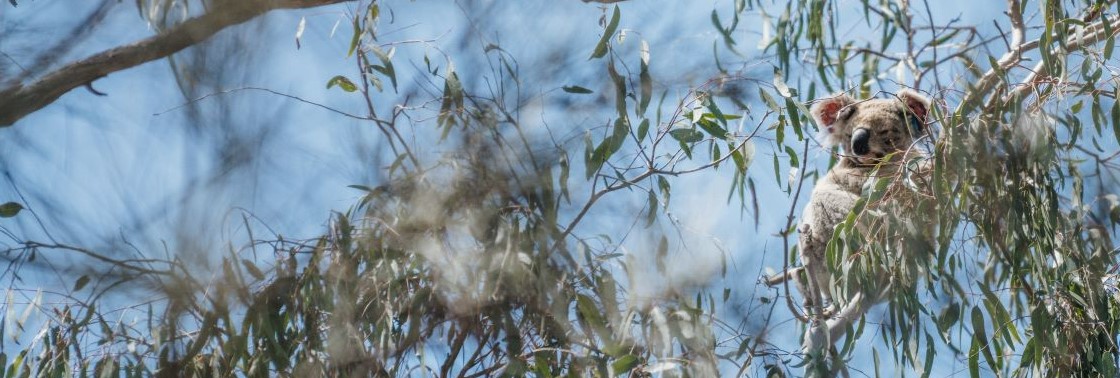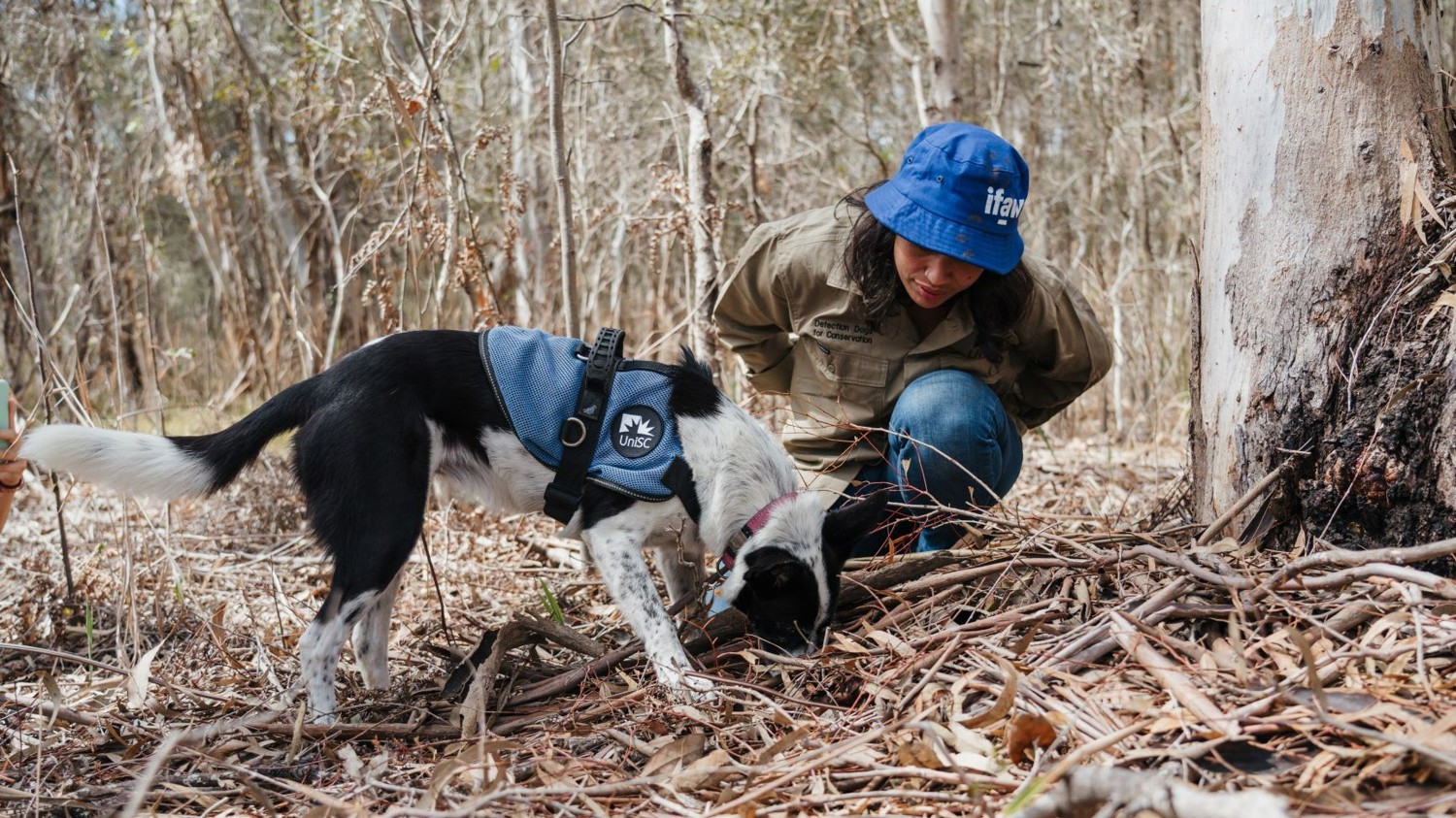University of the Sunshine Coast researchers will develop a frontline tool to diagnose chlamydia risk factors in koalas and use detection dogs to seek out chlamydia hotspots.
Two UniSC research projects will share almost $200,000 from the latest round of the Queensland Government’s Community Sustainability Action Grants for Koala Applied Research in South East Queensland.
The first project, in partnership with Australia Zoo Wildlife Hospital, aims to develop a new, simple diagnostic test to identify koalas that are more susceptible to developing chlamydial disease, with the aim of reducing unnecessary antibiotic treatments.

Bachelor of Animal Ecology
Study animals in their natural habitats and learn how we can protect wildlife in a changing environment.
“Identifying predictors of a koala’s risk for chlamydial disease is critical,” said Dr Sam Phillips, from UniSC’s Chlamydia Research Team, who has co-developed a koala vaccine as part of ongoing efforts to stop the rapid spread of the devastating infection.
“Not all infected koalas show symptoms or will go on to develop disease however, at the moment, most koalas that test positive to the sexually transmitted infection are treated with antibiotics.
“Unfortunately, antibiotics can disrupt the koala’s microbiome, which the animal depends on to digest eucalypt leaves, leading to starvation and occasionally death."
Dr Phillips said previous studies had found six different risk factors, including the DNA load of chlamydia and koala retrovirus, which made koalas more prone to the disease progressing and leading to symptoms such as blindness, severe bladder inflammation, infertility and death.
“Testing to see if koalas are positive for one or more of these genetic subtypes is complex, so it’s currently not possible as a frontline treatment or to test large numbers of koalas,” he said.
“Our new project aims to fill this gap by seeking to combine the markers for chlamydia disease progression into a single panel to test for these risk factors, which could help veterinarians decide whether to treat with antibiotics or not.”
Detection dogs and drones to find answers to unknowns
Another UniSC project will provide new insights into the disease by identifying chlamydia hotspots among koala populations by using drones, detection dogs and koala scat analysis.
Project lead and Director of UniSC Detection Dogs for Conservation (DDC), Dr Romane Cristescu, said the new koala health data would be gathered from populations in Jimna Range, in the Sommerset Region in Queensland.
It will complement existing data from adjoining populations in the Gympie, Sunshine Coast and Noosa regions.
“Our project is using innovative and exciting methods - drone and thermal imaging, detection dogs, and non-invasive molecular analyses - to map koala density and health in areas where there are still many unknowns,” Dr Cristescu said.
“We will use this new information to to identify Chlamydia hotspots within the region to increase our capacity to help koalas suffering from disease, which is a threat that currently kills too many koalas.”
“We will engage with the community about specific ways they can help – for example by reporting koala sightings using the QWildlife app, developed by the Queensland Government.”
“We would also like to engage with wildlife rescue groups in the chlamydia hotspots to discuss their interests and needs, so we can work together to assist these koalas. As with any difficult environmental issue, collaboration is key to achieve on ground success.”
Minister for the Environment and the Great Barrier Reef, Minister for Science and Minister for Multicultural Affairs Leanne Linard, who announced the new grants today, said koalas faced many threats including habitat loss, climate change, and disease.
“We are therefore committed to supporting and funding real-world applied research that will preserve this iconic species and the delicate ecosystems they inhabit,” she said. [Full ministerial statement here]
UniSC Vice Chancellor and President, Professor Helen Bartlett, said the State Government grants would help the University continue its efforts to reduce the devastating impact of chlamydia on koalas.
“This support assists UniSC to take critical action to stop the disease from threatening the future of this much loved, iconic marsupial.”
Media enquiries: Please contact the Media Team media@usc.edu.au



